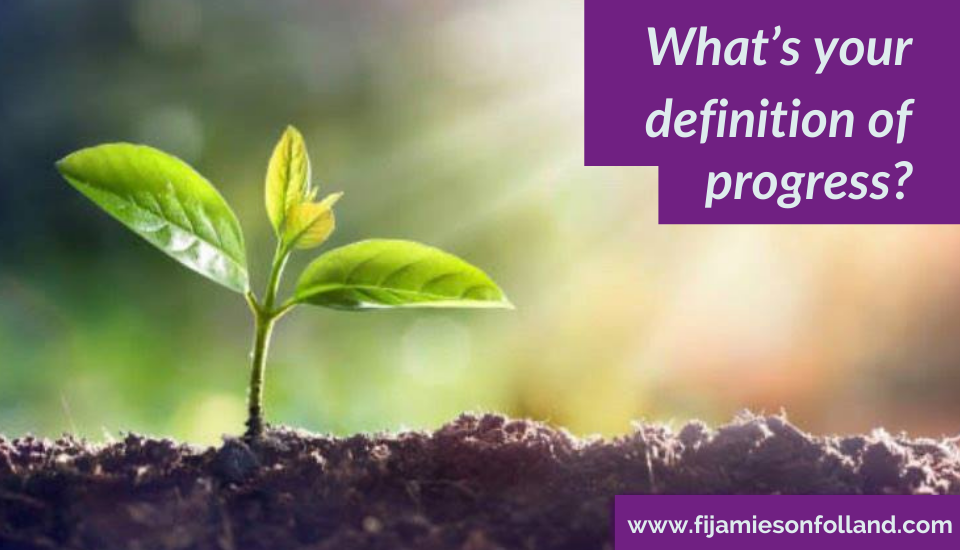So how does progress relate to happiness?
Recently, Fi posed the question, what does progress mean to you?
I looked it up, and progress in one context means moving toward something, like a better future.
I’ve also heard that progress is happiness. I like this idea, although my thought is that happiness is not dependent on progress. Instead, we can prioritise being happy no matter what’s happening.
I’ve noticed for myself that when things are going well, then I’m happy. However, when things aren’t going well, in my estimation, then I’m not happy. Life and our emotions go up and down, and I’ve realised that my mind is this relentless meaning-making machine.
Most of us have been taught to see things with a specific perspective. We think, when I’m successful, then I’ll be happy. Although science shows that it’s the reverse – when I’m happy, then I’m more likely to be successful.
So, while progress might mean happiness, slow progress or even no progress can also mean happiness. The skill (the muscle) that we can develop is to be happy regardless of what’s happening.
The question is, how do we do that?
Well, I’ll share a hack I’ve learned. Lately, I’ve had an issue with my shoulder that causes pain, makes it hard to sleep at night, and prevents me from being able to fully lift my arm. The bottom line is that I don’t like it, I’m not happy about it, and I’ve been resisting it.
Then I heard Michael Singer talking about affirmations. He explained that when we say we don’t like something, that becomes an affirmation, too!
My invitation to you is when you don’t like something, challenge yourself to think and speak about it differently and change the affirmation. For example, I’ve now chosen to shift my perspective and approach with my shoulder to one of ‘I’m ok with this’. Interestingly, the result is that the pain is less and I’m way more comfortable.
I’ve been tricking my brain into progress (through recovery) and happiness! 1
I encourage you to trial it for yourself and to notice the power of our thoughts on both the future we move towards and our emotional wellness.
Until I see you on this week’s #AliveWithFi, I’d love to hear how you get on!
1 Many studies confirm the positive impact of affirmations, including “recent scholarship from a team of researchers at Carnegie Mellon [which] suggests that self-affirmations actually buffer stress and improved problem-solving performance in underperforming and chronically stressed individuals”.
By using affirmations ourselves, we can encourage progress and happiness in our own lives, regardless of our inevitable life-challenges.
“Affirmations: The Why, What, How, and What If?”
K. Lively, PhD, (2014).
Fi Jamieson-Folland D.O., I.N.H.C., is The LifeStyle Aligner. She’s an experienced practitioner since 1992 in Europe, Asia and New Zealand as a qualified Osteopath, Integrative Nutrition Health Coach, speaker, educator, writer, certified raw vegan gluten-free chef, and Health Brand Ambassador.


